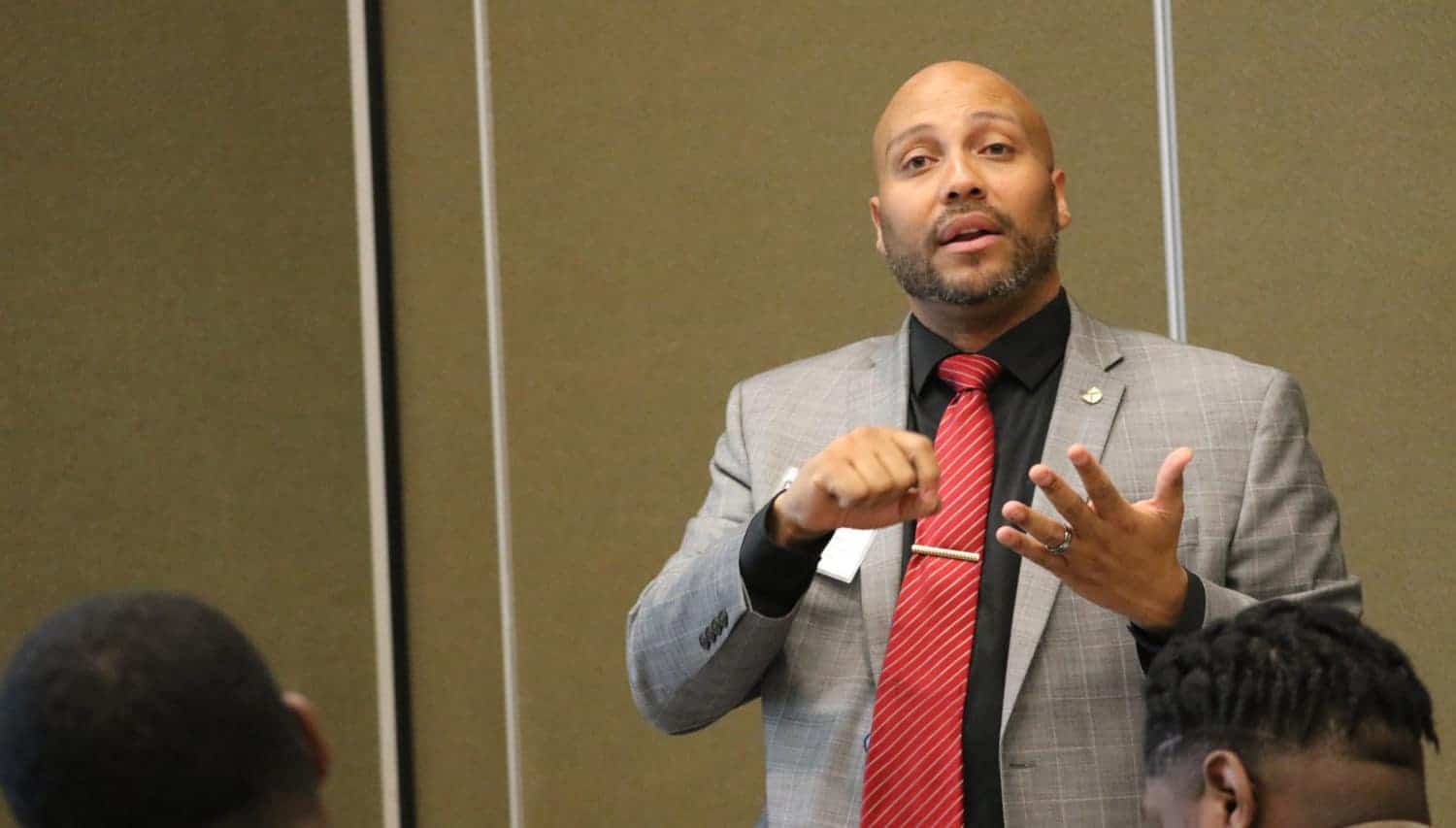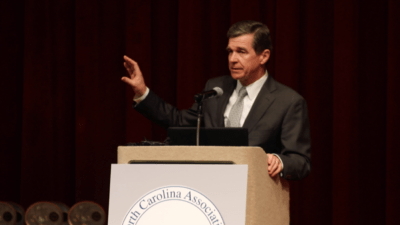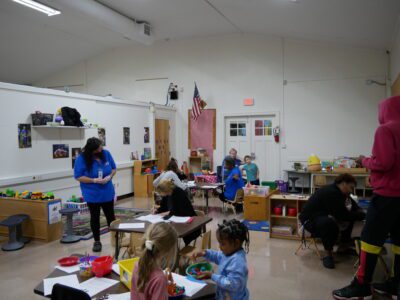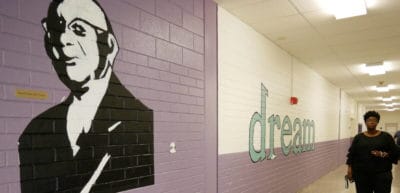“What’s right about this?” asked Jairo McMican, Durham Technical Community College’s director of admissions and advising services, as he pointed to a misspelled phrase: “defecit narrattive.”
Community college students and educators listening to McMican at the Minority Male Success Initiative conference Monday immediately began to correct the spelling. “Two t’s,” said someone in the front of the room. “I asked what’s right!” McMican said.
“A lot of times, when people look at certain things, they automatically just want to fix what’s wrong,” he said. “And you can’t do that.”
McMican encouraged an in- and out-of-classroom approach based on getting to know students and meeting them where they are instead of passing judgment on their behavior or academic performance. His session was part of a three-day conference backed by the statewide community college system called, “Bridging the Gap: Innovative Approaches to Minority Male Success.” The conference provided a space for networking and exchanging insight around improving the degree attainment and life experiences of males of color.
NC Community College System’s Associate Director of Student Life John “JJ” Evans echoed McMican’s philosophy.
“Our system is based on the fundamental belief that we take students as they are and carry them as far as they want to go,” Evans said. “We need to make sure that we’re helping all of our students successfully graduate, transfer, find employment, workforce development skills, whatever their outcome is.”
Evans said the Minority Male Success Initiative, which started in 2003 as a pilot program at six community colleges and is now present at 47 of the 58 community colleges across the state, exposes and minimizes discrepancies in academic and life success for people of color, specifically males of color. The organization began with mentoring opportunities for minority males and now varies in its support services depending on the community college and its students’ needs.
“In our system we know that there’s inequities in terms of outcomes and achievement,” Evans said. “… [P]art of the reason that we’re having this conference is to put a spotlight on that and then also provide resources to help our students grow and matriculate to wherever they’re going.”
This was the first conference of its kind since 2014, Evans said, when grant funding ran out. Through corporate sponsorships and using internal resources, he said the event came together with slightly smaller attendance than in past years. Nearly 300 educators and students from around the state attended this year.
Breakout session topics ranged from academic and financial success to personal integrity and familial responsibility, with titles like, “Dress Your Way to Success,” “Real Men Accepting Help Through Mentoring,” “The Impact of Fatherhood,” “Data Tracking to Improve Program Success,” and “Success Through Leadership.”
In a session called “You Feel Me?” Kismet Loftin-Bell, chief idea strategist at Beyond the Box Solutions, and Kimya Dennis, sociology and criminal studies professor at Salem College, walked attendees through different social expectations and labels often placed on men of color. They started with the simple question: “What does it mean to be a man?”
Attendees called out characteristics and phrases associated with traditional masculinity: “responsible,” “tough love,” “money maker,” “maturity,” “not allowed to show emotions,” and “provide, prosper, protect.”
Dennis and Loftin-Bell said meeting social expectations based on gender or race does not allow honest expression.
“We acknowledge the suppression of emotions and feelings, but we still have to show up in the world,” Loftin-Bell said. “And in order to save face, we put on … some other face.”
Loftin-Bell listed “masks” she said men often wear to hide unresolved pain or insecurity, like athleticism, aggression, sexual promiscuity, humor, knowledge, or religion.
Dennis, who does research around race and gender, explained how limited definitions of masculinity are often tied to homophobia.
“We really need to dissect this and think about this because it challenges what we consider normal and it challenges what we consider ok,” Dennis said. “There are a lot of young boys and young black men who are very insecure and don’t even know their own sexuality, and therefore they act out in aggression and anger to try to figure it out for themselves.”
Encouragement to shed false expectations or labels was layered throughout the conference. During a panel of community college and university presidents, Saint Augustine’s University President Everett Ward said the university tries to knock down barriers for men of color, starting with negative stereotypes.
“It’s important that we tell them that you are loved as young black men and we put positive role models in front of them so that they can see that the stereotypes that you see at 6 o’clock — all black boys don’t wear orange jumpsuits, and we’ve got to insist that the media and others give a true balance of African-American society, particularly as it relates to young black boys.”





